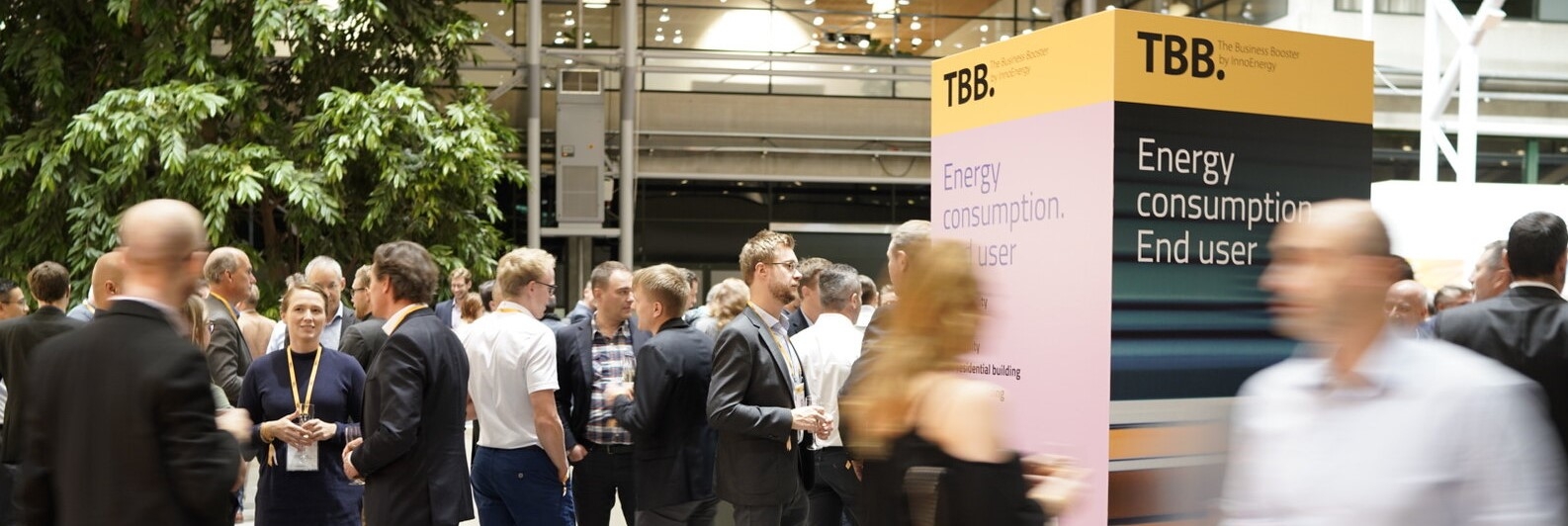Sustainable Mobility Forum 2021: a retrospective on a successful edition

Back in March 2021, took place the Sustainable Mobility Forum, co-organized with HUB Institute. Throughout the year, the HUB Institute brings together a wide range of solution makers to discuss trends, actions from committed organizations, as well as a range of sustainable solutions.
That day, EIT InnoEnergy's Thematic Field Leader Energy for Transport & Mobility, Jennifer Dungs, led the discussion about the impact of smarter urban mobility. In addition, five EIT InnoEnergy supported startups presented their solutions regarding the matter.
Societal behaviors have changed as people focus more on sustainability and ecology. Cities are creating new infrastructures, more greens spaces, more lanes for different vehicles.
The following innovations are created by companies that support their local economy. They want to use the European potential to create and maintain an easier supply chain and contribute to their local region.
Electric mobility
DUCKT develops universal infrastructure solutions for all micro-mobility vehicles. Marc-Antoine Réol, Country Manager France at DUCKT, declared: “We want to implement 17 stations in Paris”. Their solutions come with a sleek design, industrial quality, smart properties, and a “dock lock and play” concept. They want to smooth out infrastructure costs. Besides, the stations are made available free of charge and generate income by use.
Kumpan Electric is a German company that offers a unique sustainable et innovative electric E-Scooter. Daniel Jacobs, Country Manager France at Kumpan Electric declares: “Our vehicles are scooters with very large autonomy. Our batteries are convertible and interchangeable”. They use portable energy that adapts to several different objects (from tricycles to boat…) In addition to electric scooters and batteries, they provide a smart fleet management software program with an open interface to monitor each vehicle and its data.
ONO is a Berlin-based e-mobility company introducing a whole new category of emissions-free vehicles. Vieran Hodko, head of Brand Development & Partnerships at ONO, highlighted the fact that the Covid-19 pandemic has secretly triggered green mobility: “People have new habits, and they are wary of taking public transport. They prefer individual means of mobility for short journeys. This is due to the measures taken by cities to limit the movements of inhabitants.” Many cities implemented drastic regulations to improve air quality. To get around town, there are traditional means, such as the scooter, the bicycle, or the car. ONO decided to create an "in-between category", for the delivery of goods, with a modular and flexible vehicle. This vehicle allows parcel delivery along with other secondary applications.
Scoobic designs vehicles that are suited to the logistics requirements of the last mile in cities. Anaïs Jannin, country manager France at Scoobic, said: “The perfect vehicle for us is electric because it does not generate noise or air pollution. It is ergonomic and comfortable for the driver. It provides load stability and is compact with a large load capacity to reach the customer's doorstep inside cities.”
This is the solution they offer to meet the needs of a more economical and ecological model.
Green gas
In France, the hydrogen market for smart mobility proves to be quite dynamic. Today there are nearly 450 light hydrogen vehicles and around 20 buses in the entire country.
Atawey, a company that designs and manufactures hydrogen recharging stations, has implemented 25 of them so far. They want to create different types of stations to meet the needs of the increasing demands to maximize investments for customers. Geoffroi Ville, Head of International Development at Atawey, said: “This is the beginning. They are creating more and more cars each year.”
EIT InnoEnergy's Thematic Field Leader Energy for Transport & Mobility, Jennifer Dungs, said: “By 2030, 70% of the population is expected to live in cities. Most of the consumed energy is consumed in our cities, from which 80% of greenhouse gases are emitted. This is an opportunity to design new innovative mobility solutions to create climate change.” Even if electric car manufacturing can create more jobs, it still takes up too much space. There is a need for other smart solutions. With new infrastructures and other types of mobility with sustainable vehicles that are using recycled materials, and clean energy.
She added: “All these new different types of mobility are necessary to build a better future.”
Watch the replays below:

